Lillian Ngan
2025 Fellowship
Lillian Ngan is a PhD student in the Department of East Asian Languages and Cultures. Her research focuses on the representation of Vietnam/ Vietnamese in Sinophone cultural production to interrogate multiple colonialisms, imperialisms, and intersections. By examining the open signifier of “Vietnam” in Hong Kong social movement, Sinophone Malaysian literary work, as well as Vietnamese Taiwanese cinematic production, Lillian’s work suggests that the representation points toward the competition and collusion of multiple dominations in the transpacific nexus. It also exemplifies those transpacific relations do not only occur between the United States and Asia, but between all countries that share the pacific. The research enables understudied regions to unveil the comparable decolonial trajectories between East Asia and Southeast Asia, between Sinophone communities and Vietnam.
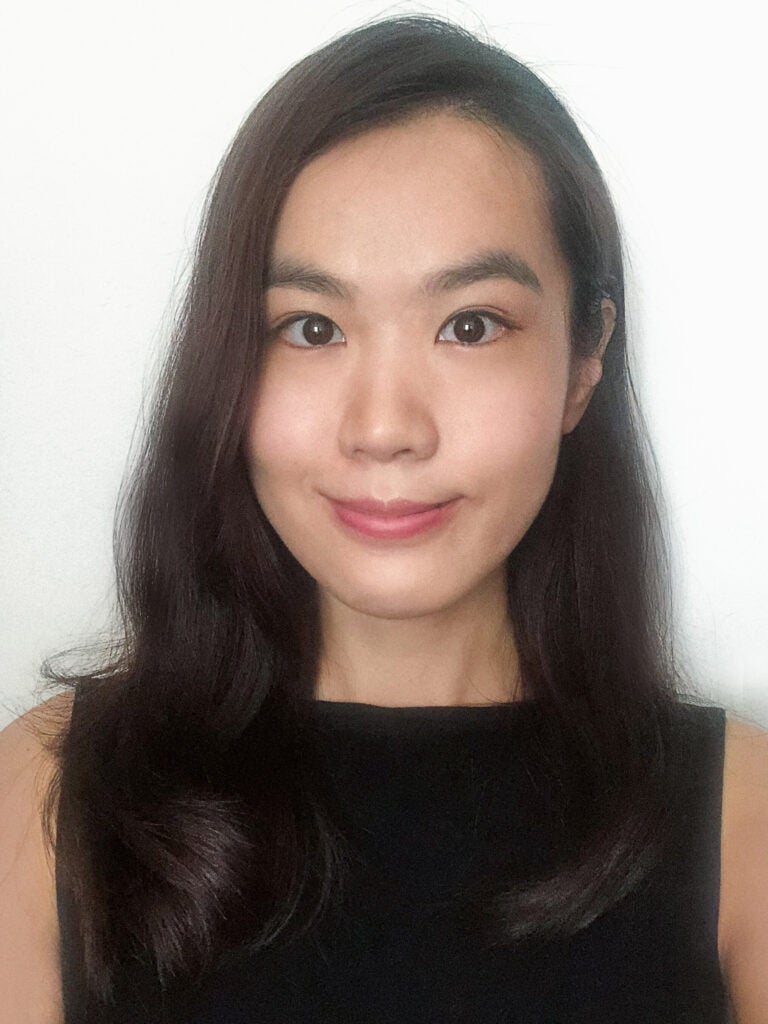
Chris Chien
2022 Fellowship
Chris Chien is a PhD Candidate in the Department of American Studies and Ethnicity at the University of Southern California. His research examines transpacific Cold War visual cultures as they shape conceptions of today’s “New Cold War.” His dissertation, Seeing Non-Sovereignty: US-Hong Kong Entanglement in the Cold War Transpacific, examines how statist visual technologies, from police photography and colonial archival practice to suburban architectures, have reproduced Cold War visualities defined by binary nationalisms of Authoritarian Communism versus Democratic Capitalism. Drawing on aesthetic political practices such as migrant photography, Indigenous/First Nations performance art, and refugee video art, this project argues that grassroots experiences of migration and labor under global capitalism belie totalizing Cold War visualities. His scholarly writing has appeared in Amerasia Journal and Hong Kong Studies, and in popular media outlets The Funambulist, The Nation, and Jacobin. He is an organizer with Lausan Collective and Dissenters.
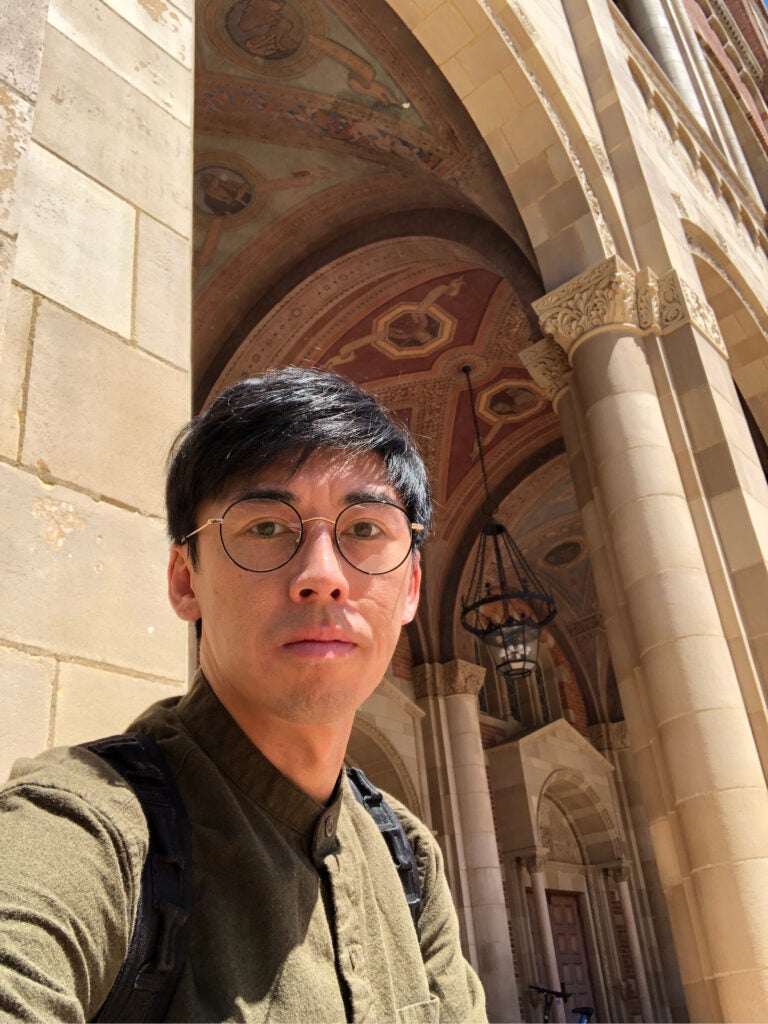
Rio Katayama
2022 Fellowship
Rio Katayama is a PhD Candidate in the Department of East Asian Languages and Cultures at the University of Southern California. Her research interests include contemporary Japanese cinema and media studies, modern Japanese literature, transnational cinema in East Asia, gender, and affect. Her dissertation, “Narrating Bodies: (De) Constructing Affective Japan Through Disasters” explores the multi-layered (de)construction of Japan-ness and its relations to affective bodily responses that are elicited through the depiction of continuous nuclear trauma in Japanese audiovisual media. Drawing on cinematic, literary, and theatrical representations, her dissertation argues that Japan-ness serves as a vehicle for people to bond and form communities whether the communities are based on the notion of inclusion or exclusion. Her scholarly work has appeared in Celebrity Studies Special Issue: Starring Asia – Asian Stardom and Celebrity. Her research has been supported by an ACE-Nikaido Fellowship, Barbara F. Inamoto Fellowship in Japanese Studies, USC Graduate School, and the Department of East Asian Languages and Cultures.
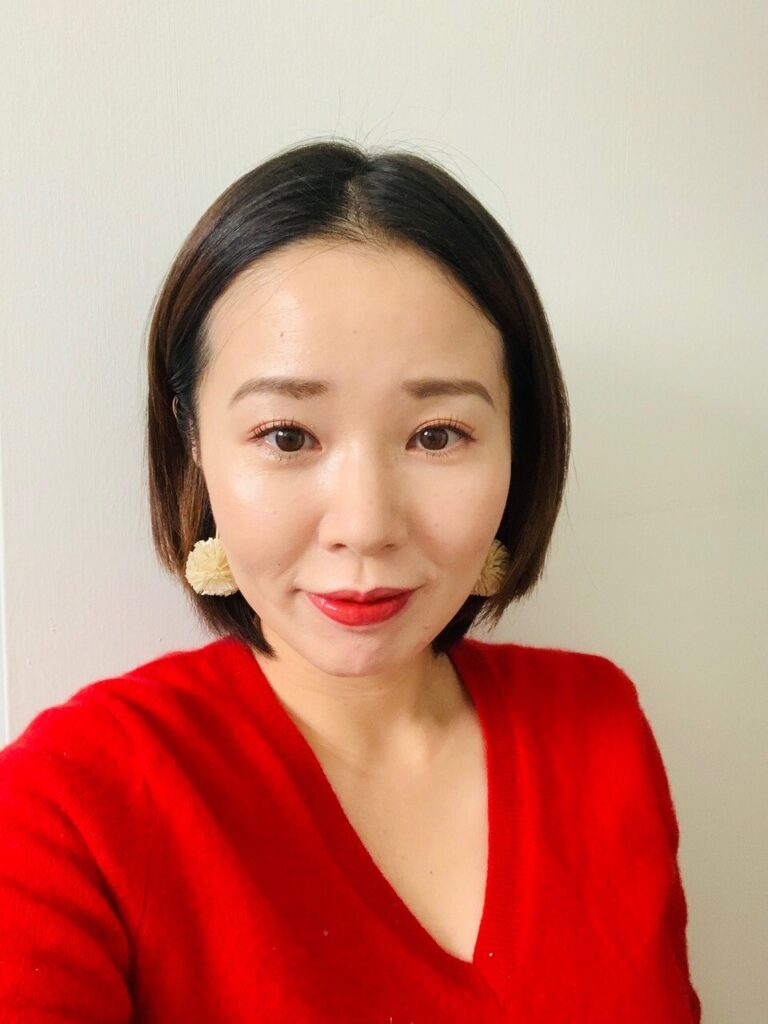
Jenny Hoang
2020-2021 Fellowship
Jenny Hoang is a PhD candidate in the Department of American Studies and Ethnicity at the University of Southern California. Her dissertation, “Living Alongside: Tomboys and Ts in the San Gabriel Valley and Taipei,” focuses on the powerful changes that small gestures of understanding and empathy play in building communion between tomboys and their surrounding communities. Drawing on in-depth interviews with participants in Taipei and the San Gabriel Valley, 16 months of fieldwork in Taipei, and fieldwork in the San Gabriel Valley that began in 2012, “Living Alongside” argues that tomboys engage in persistent and non-confrontational negotiations of their gender and sexuality with kin and strangers alike in order to naturalize their masculinity and normalize their same-sex desires. Jenny’s research has been supported by a Gold Family Fellowship, the Ministry of Education Republic of China, Taiwan, and the Center for Transpacific Studies.
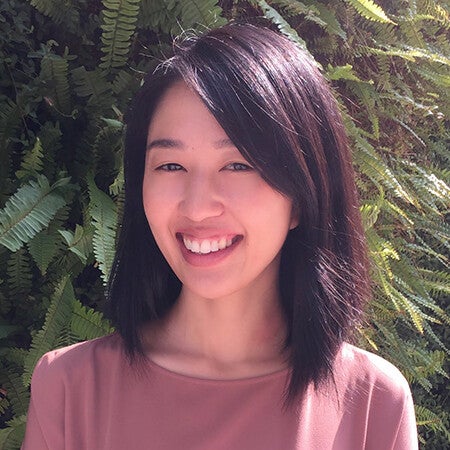
Rosanne Sia
2019-2020 Fellowship
Rosanne Sia is an Assistant Professor at the Institute for Gender, Race, Sexuality, and Social Justice at the University of British Columbia. She received her PhD in American Studies and Ethnicity from the University of Southern California. Her research works across Cold War cultural history, performance studies, critical race studies, and queer studies. Her dissertation, Fantasy in Motion: Performing Racial Imaginaries in the early Cold War, focuses on women of Asian and Latinx descent who danced and sang on nightclub circuits in the early Cold War. Drawing on forty-five oral histories, she argues that performers crossed boundaries of genre, nation, language, race, and sexuality that exceeded Cold War narratives of racial integration. Community engaged scholarship through oral history methodology and practice is at the heart of her research projects.
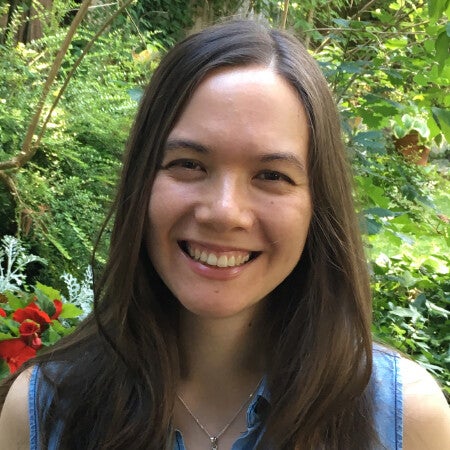
Feng-Mei Heberer
2014-2015 Fellowship
Feng-Mei Heberer is Assistant Professor in the Department of Cinema Studies. She joins NYU from the Massachusetts Institute of Technology where she was a Mellon postdoctoral fellow in Global Studies and Languages. She received her PhD from the University of Southern California and holds an MA from the Free University Berlin. In addition, she studied film in France and China on fellowships from the German National Academic Foundation.
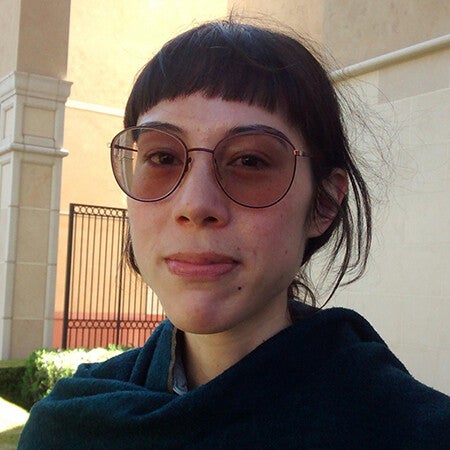
Brandon Som
2013-2014 Fellowship
Brandon Som is Assistant Professor of Literature and Creative Writing at the University of California, San Diego. He received his Ph.D. in Literature and Creative Writing from the University of Southern California, and an M.F.A. in Poetry at the University of Pittsburgh. He is the author of The Tribute Horse, winner of the Kate Tufts Discovery Award, and the chapbook Babel’s Moon, winner of the Snowbound Prize. He was the Anne Newman Sutton Weeks Poet-in-Residence at Westminster College, and was awarded fellowships at the Provincetown Fine Arts Work Center and Civitella Ranieri. His teaching and writing interests include 20th- and 21st century poetry, transpacific literature, Asian-American and Chicanx poetry, citational poetics, and sound studies.
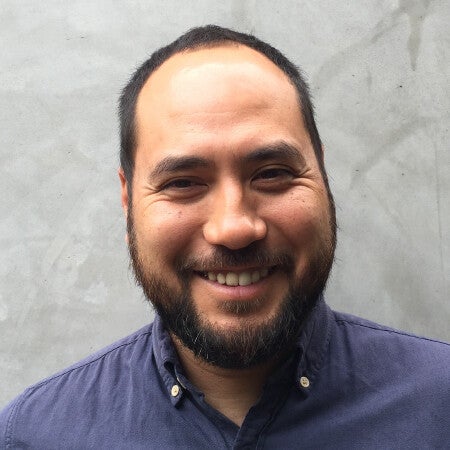
Go Oyagi
2012-2013 Fellowship
Go Oyagi is Lecturer of American culture at Kinjo Gakuin University in Nagoya, Aichi, Japan. His research and teaching interests include US history, Asian American studies, race and ethnicity, nationalism, and social movement. Thanks to a final year dissertation fellowship granted by the Center for Transpacific Studies in 2012-2013, he obtained his Ph.D. from the Department of History at USC. He is currently working on a book manuscript that explores the ways in which Asian Americans developed relations with the peoples in East Asia and intervened in US foreign policy in the post-World War II period.
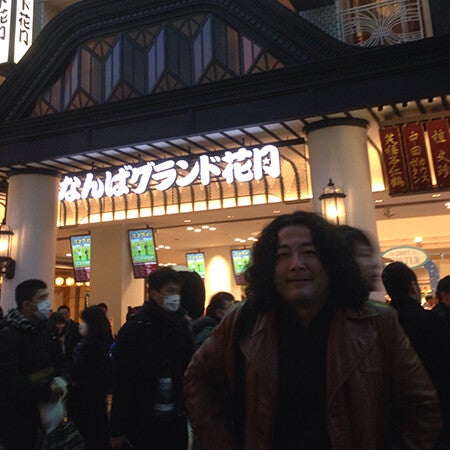
Past and Present Transpacific Studies Fellows
-
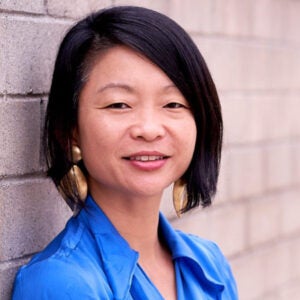 Crystal Mun-hye Baik is Associate Professor, Gender & Sexuality Studies, University of California Riverside. She received her PhD in American Studies and Ethnicity from the University of Southern California in 2011. Her book, Reencounters: On the Korean War & Diasporic Memory Critique was published by Temple University Press, in Fall 2019. In Reencounters, Crystal Mun-hye Baik examines what it means to live with and remember an ongoing war when its manifestations—hypervisible and deeply sensed—become everyday formations delinked from militarization. Contemplating beyond notions of inherited trauma and postmemory, Baik offers the concept of reencounters to better track the Korean War’s illegible entanglements through an interdisciplinary archive of diasporic memory works that includes oral history projects, performances, and video installations rarely examined by Asian American studies scholars.
Crystal Mun-hye Baik is Associate Professor, Gender & Sexuality Studies, University of California Riverside. She received her PhD in American Studies and Ethnicity from the University of Southern California in 2011. Her book, Reencounters: On the Korean War & Diasporic Memory Critique was published by Temple University Press, in Fall 2019. In Reencounters, Crystal Mun-hye Baik examines what it means to live with and remember an ongoing war when its manifestations—hypervisible and deeply sensed—become everyday formations delinked from militarization. Contemplating beyond notions of inherited trauma and postmemory, Baik offers the concept of reencounters to better track the Korean War’s illegible entanglements through an interdisciplinary archive of diasporic memory works that includes oral history projects, performances, and video installations rarely examined by Asian American studies scholars. -
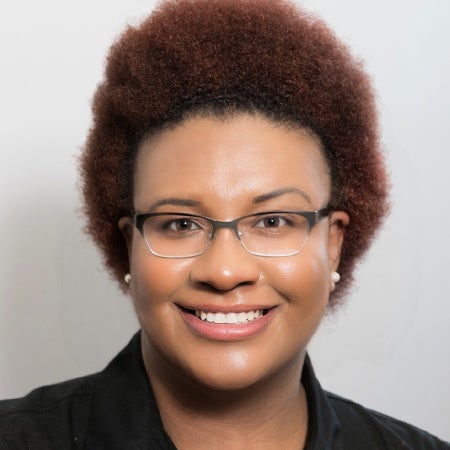 Dr. Keisha A. Brown joined Tennessee State University as an Assistant Professor of History in the Department of History, Political Science, Geography, and Africana Studies in the College of Liberal Arts in 2015. Keisha Brown received her B.A. from the University of Notre Dame with a double major in American Studies and Chinese and her Ph.D. from the University of Southern California. In addition to teaching World History II and Global Culture in History courses, Dr. Brown has also developed new courses related to her research. Professor Brown is a historian of modern China, with allied interests in race and ethnic studies, postcolonial theory and social and cultural history in modern East Asia. Specifically, Dr. Brown’s is interested in modern understandings of what she has termed Sino-Black relations.
Dr. Keisha A. Brown joined Tennessee State University as an Assistant Professor of History in the Department of History, Political Science, Geography, and Africana Studies in the College of Liberal Arts in 2015. Keisha Brown received her B.A. from the University of Notre Dame with a double major in American Studies and Chinese and her Ph.D. from the University of Southern California. In addition to teaching World History II and Global Culture in History courses, Dr. Brown has also developed new courses related to her research. Professor Brown is a historian of modern China, with allied interests in race and ethnic studies, postcolonial theory and social and cultural history in modern East Asia. Specifically, Dr. Brown’s is interested in modern understandings of what she has termed Sino-Black relations. -
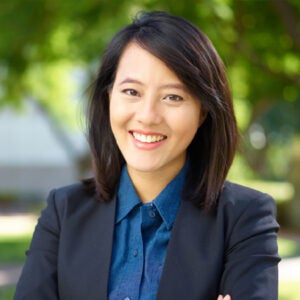 Nadine Chan is assistant professor of cultural studies at Claremont Graduate University. Her areas of research and teaching include: media historiography and theory, postcolonial and new empire studies, environmental humanities, media and the Anthropocene, visual studies, media anthropology, nontheatrical film, Global Asia, and Southeast Asian film and media. She received her PhD in cinema and media studies with a certificate in visual studies from the University of Southern California. Chan was a former Harper-Schmidt Fellow in the Society of Fellows at the University of Chicago and a Global Asia Postdoctoral Fellow at Nanyang Technological University, Singapore.
Nadine Chan is assistant professor of cultural studies at Claremont Graduate University. Her areas of research and teaching include: media historiography and theory, postcolonial and new empire studies, environmental humanities, media and the Anthropocene, visual studies, media anthropology, nontheatrical film, Global Asia, and Southeast Asian film and media. She received her PhD in cinema and media studies with a certificate in visual studies from the University of Southern California. Chan was a former Harper-Schmidt Fellow in the Society of Fellows at the University of Chicago and a Global Asia Postdoctoral Fellow at Nanyang Technological University, Singapore.Chan’s first book-in-progress, Cinema Under the Palms: Colonial Education in an Unruly Medium, conceptualizes film as an object that is animated by both colonial and counter-colonial energies. Through a study of colonial educational films in British Malaya and Singapore from the 1910s to the present, it offers a theoretical and historiographical framework for colonial cinemas and their postcolonial afterlives. While the book argues for a new genealogy of cinema that locates its technologies, theories, and aesthetics as an extension of the logics and material practices of late colonialism, it also contends that with cinema’s slippages, opacities, and irrationalities, the medium lends itself to riotous counter-colonial possibilities.
-
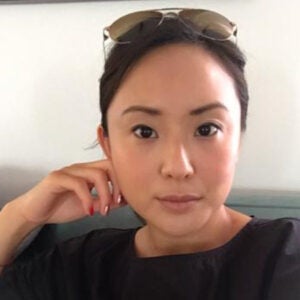 Viola Lasmana received her PhD from the Department of English at University of Southern California in 2018. Her research interests include digital humanities, transpacific studies, American literature, Southeast Asian American Studies, digital pedagogies, and remix culture. Her dissertation analyzes post-1965, post-genocide Indonesian/Indonesian-American cultural productions, including literature, film, and digital media and archives. Viola’s work can be found in Computers and Composition Online, make/shift: feminisms in motion, Interdisciplinary Humanities, and Visual Anthropology. She was a 2013-2014 USC Transpacific Studies Graduate Fellow, a 2015-2017 USC Digital Humanities PhD Fellow, and currently serves as one of Fembot Collective’s International Consultants on the Fembot Advisory Board (FAB). She also developed a new course on Transpacific Media and the Global Imagination as a General Education Seminar, at USC in Spring 2019. She has an ACLS Emerging Scholars Postdoctoral Fellowship and is now on a postdoctoral fellowship at Columbia University, New York.
Viola Lasmana received her PhD from the Department of English at University of Southern California in 2018. Her research interests include digital humanities, transpacific studies, American literature, Southeast Asian American Studies, digital pedagogies, and remix culture. Her dissertation analyzes post-1965, post-genocide Indonesian/Indonesian-American cultural productions, including literature, film, and digital media and archives. Viola’s work can be found in Computers and Composition Online, make/shift: feminisms in motion, Interdisciplinary Humanities, and Visual Anthropology. She was a 2013-2014 USC Transpacific Studies Graduate Fellow, a 2015-2017 USC Digital Humanities PhD Fellow, and currently serves as one of Fembot Collective’s International Consultants on the Fembot Advisory Board (FAB). She also developed a new course on Transpacific Media and the Global Imagination as a General Education Seminar, at USC in Spring 2019. She has an ACLS Emerging Scholars Postdoctoral Fellowship and is now on a postdoctoral fellowship at Columbia University, New York. -
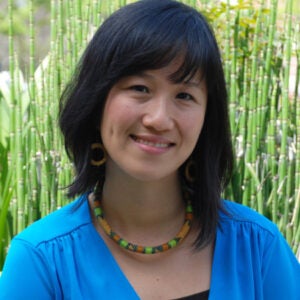 Ana Paulina Lee is assistant professor of Latin American and Iberian Cultures at Columbia University. Lee’s research and teaching interests focus on race, gender, nation, and citizenship; slavery and abolition, postcolonial studies; subaltern studies; literary theory; visual culture and performance, and cultural studies with a focus on 19th and 20th century Brazil and Portuguese-speaking Asian countries.
Ana Paulina Lee is assistant professor of Latin American and Iberian Cultures at Columbia University. Lee’s research and teaching interests focus on race, gender, nation, and citizenship; slavery and abolition, postcolonial studies; subaltern studies; literary theory; visual culture and performance, and cultural studies with a focus on 19th and 20th century Brazil and Portuguese-speaking Asian countries.Professor Lee is the author of Mandarin Brazil: Race, Representation and Memory (Winner of the 2019 Antonio Candido Prize for Best Book in the Humanities). Mandarin Brazil examines the way that Brazilian cultural institutes constructed ideas about China and the Chinese to strengthen nationalism and racial whitening ideologies. The book examines the cultural histories of Brazil and China by bringing together a multigenre archive that maps the circulation of trade, labor, and material culture to reveal the connected histories of Chinese and Portuguese expansion and globalization to the hemispheric Americas.
-
Lina Nie is
 an Assistant Professor of History at Texas A&M University. Graduating from HKU with double majors in Chinese history and Japanese studies, her research interest focuses on maritime, diplomatic, military, and cultural exchanges among China, Korea, and Japan. She obtained her master degree from the Regional Studies East Asia program at Harvard University, with Harvard Yenching Fellowship. In addition to maritime and transnational studies, Lina is also interested in global history and comparative history in a broader trans-Pacific context that goes beyond East Asia. Her Japanese article discussing the traditions of Japanese culture won the second runner-up in the annual essay contest held by the consulate general in New England 2017.
an Assistant Professor of History at Texas A&M University. Graduating from HKU with double majors in Chinese history and Japanese studies, her research interest focuses on maritime, diplomatic, military, and cultural exchanges among China, Korea, and Japan. She obtained her master degree from the Regional Studies East Asia program at Harvard University, with Harvard Yenching Fellowship. In addition to maritime and transnational studies, Lina is also interested in global history and comparative history in a broader trans-Pacific context that goes beyond East Asia. Her Japanese article discussing the traditions of Japanese culture won the second runner-up in the annual essay contest held by the consulate general in New England 2017. -
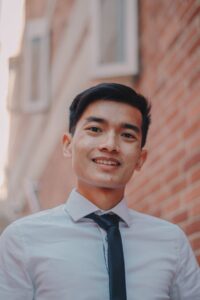 Jason Tuấn Vũ (he/they) is a first-year PhD student and Provost Fellow in the American Studies and Ethnicity Department at USC. His research interrogates the intersections of settler colonialism, militarism, and carcerality in the formation of global US empire. By engaging with the issue of Southeast Asian refugee deportation, he aims to chart a critical transpacific geography that links settler-military infrastructures to expanding US carceral power. In doing so, he hopes to bring Indigenous and refugee critiques of US empire into closer conversation, pointing toward resonant histories and potential futures of solidarity and resistance.
Jason Tuấn Vũ (he/they) is a first-year PhD student and Provost Fellow in the American Studies and Ethnicity Department at USC. His research interrogates the intersections of settler colonialism, militarism, and carcerality in the formation of global US empire. By engaging with the issue of Southeast Asian refugee deportation, he aims to chart a critical transpacific geography that links settler-military infrastructures to expanding US carceral power. In doing so, he hopes to bring Indigenous and refugee critiques of US empire into closer conversation, pointing toward resonant histories and potential futures of solidarity and resistance.